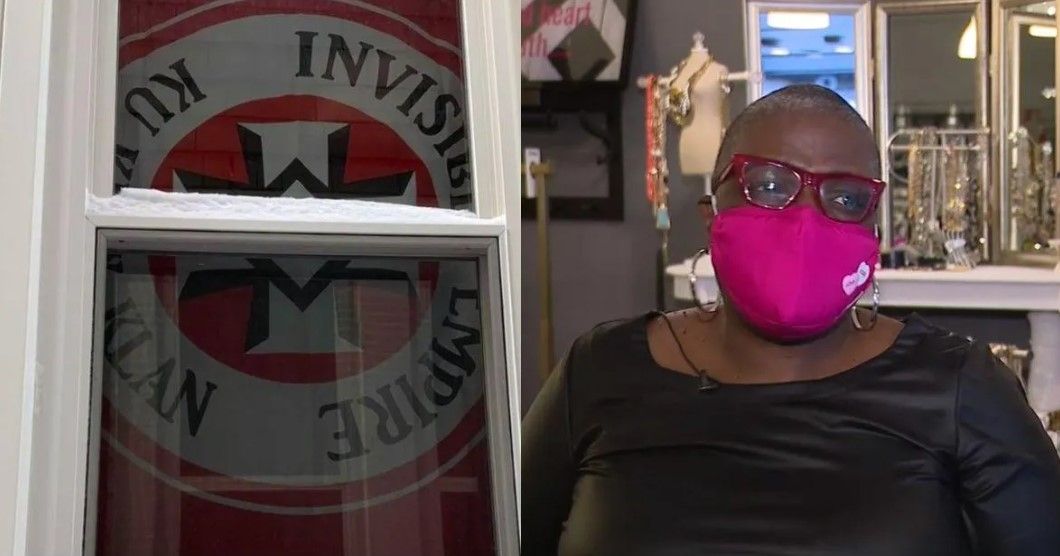Michigan Prosecutor Declines To Charge White Man Who Terrorized Black Family With A KKK Flag
A Black Michigan prosecutor found there was no evidence to prosecute a 31-year-old white man who hung a red KKK flag in a window facing the home of JeDonna Dinges, a Black woman and resident of Grosse Pointe Park, Michigan.
Dinges recently learned that Wayne County Prosecutor Kym Worthy, would not pursue charges.
“There is absolutely no question that what happened to Ms. Dinges was despicable, traumatizing, and completely unacceptable. But, very unfortunately in my view, not a crime,” Worthy said in a statement.
A Michigan man hung a KKK flag facing his Black neighbor’s home. It’s not a crime, prosecutors say. https://t.co/osBesPtJtN
— The Washington Post (@washingtonpost) March 3, 2021
Worthy argued that under state law a charge for ethnic intimidation required contact with the victim or their property, which could include a physical interaction or the hurling of a racial slur. The flag’s position in the window didn’t meet the statute.
“I strongly encourage the Michigan Legislature to look, revise, and create laws to protect citizens from this kind of horrible conduct,” Worthy continued.
Dinges, 57, said that prior to the flag discovery she experienced a difficult relationship with her 31-year-old neighbor, whose name has not been released. The challenges she faced took place over a five year span.
Michigan man won’t face charges for hanging KKK flag facing home of Black neighbors https://t.co/s1TOnb3GeY pic.twitter.com/6BZMHU86b5
— The Hill (@thehill) March 3, 2021
One evening early after her neighbor moved in, Dingle said she was startled when she observed him firing off shots into the backyard.
And shortly prior to the flag incident, Dinges installed a security camera after discovering a full can of gas inside of her trash can.
Dinges’ ex-husband who is white, made the alarming discovery of the gas can. He also cleared up confusion for Dinges who was initially stumped over the flag’s meaning.
“He informed me that there was a flag in the neighbor’s window that said something about the Invisible Empire. I had no idea what it meant,” she told The Washington Post.
“Staring right at me was this Klan flag,” she said after she peered through her curtains.
Dinges told the Post that she took the matter into her own hands after she felt local enforcement failed to do enough to keep her family protected. She contacted the FBI and the state attorney general’s office, but when the informed her they could not pursue charges, she took to social media where an online community rallied around her.
Last month activists and the local chapter of the NAACP held a rally for justice on Dinges’ street. Dinges says she understands the position of the prosecutor, regardless of the outcome against her.
“As emotional as this whole thing has been for myself and my family and the community, the prosecutor can’t prosecute based on emotions,” Dinges said. “You have to follow the law and I get that.”
She remains dedicated to the cause for racial equity and actively participates in community efforts to broaden justice initiatives.
SEE ALSO:
Senate Confirms Cecilia Rouse As The First Black Person To Chair The Council of Economic Advisers
Mississippi, Texas Lift COVID-19 Restrictions Placing Underserved Communities At Risk
[ione_media_gallery id=”3905476″ overlay=”true”]

